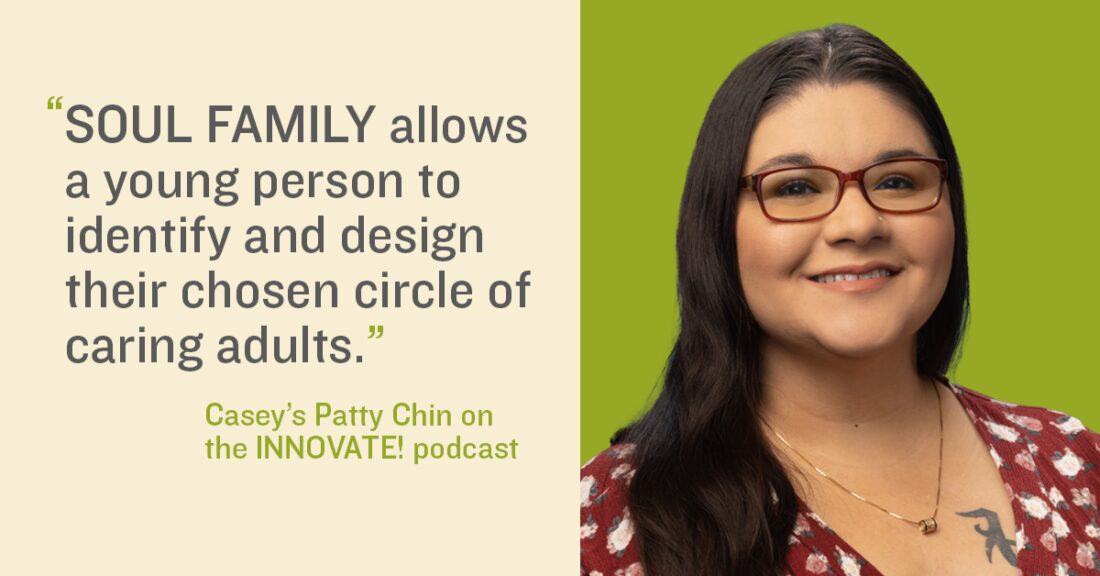What SOUL Family Means to One of Its Young Advocates

In 2018, a group of the Annie E. Casey Foundation’s Jim Casey Fellows proposed a new form of legal permanence, one that would create a circle of caring adults to provide support, opportunity, unity and legal relationships for young people as they move from foster care to adulthood. Today, Kansas is leading the way in developing policies and practices that could one day make SOUL Family a reality.
Patricia Chin, one of SOUL Family’s young designers, is now a program associate at the Casey Foundation. She recently told INNOVATE! podcast listeners how her peers’ foster care experience, and her own, shaped the SOUL Family proposal.
SOUL Family’s young advocates aim to maintain legal relationships with their birth parents and siblings while they establish legal, supportive relationships with one or more trusted adult caregivers in their communities. Also, they want states to allow young people in SOUL Families to keep their eligibility to receive services and resources that help with college, jobs and housing. In some states, young people in foster care lose access to some forms of assistance if they gain a permanent family.
“Many of us felt that we were up against this time clock,” Chin says. “Do I achieve permanence? Or do I lose out on these benefits? Do I lose out on all of the things that could potentially get me to college or get me housing… and many of us chose the latter.”
If SOUL Family became a legal permanency option, young people ages 16 and older wouldn’t have to choose between having a family or having the services and support they need to thrive, Chin says. They would also have a say in their future: They would identify potential caregivers from their own community of relatives, adult family friends and mentors. She shares how an option such as SOUL Family would have helped her and her birth family heal their relationship after she aged out of foster care in Hawaii.
Too many young people leave foster care without the connections with adults and mentors they need to thrive, Chin says. That’s a major reason why innovations in permanence are needed.
“There’s about 51% of young people, age 16 and older, who don’t achieve permanence at all,” Chin says, citing data in a brief from the Casey Foundation: “Fostering Youth Transitions 2023.”
The brief recommends that states better equip child welfare agencies to promote long-lasting connections for older youth with caring adults and prioritize arrangements with kin and trusted adults.
The INNOVATE! Podcast
INNOVATE! features interviews with Re-Envisioning Foster Care in America (REFCA) Champions, recipients of an honor from the Treehouse Foundation. The award and the podcast showcase people who have experienced foster care and who are working to transform the child welfare system for current and future generations.
Chin received the Champion Award in 2022 for her work on foster care system improvements in Hawaii, including her tenure on the HI H.O.P.E.S. Youth Leadership Board, a program of EPIC ’Ohana Inc., a partner site with the Casey Foundation’s Jim Casey Youth Opportunities Initiative®, and for her work with 16 other young leaders on the SOUL Family proposal.





